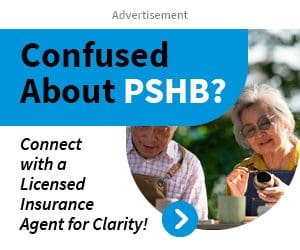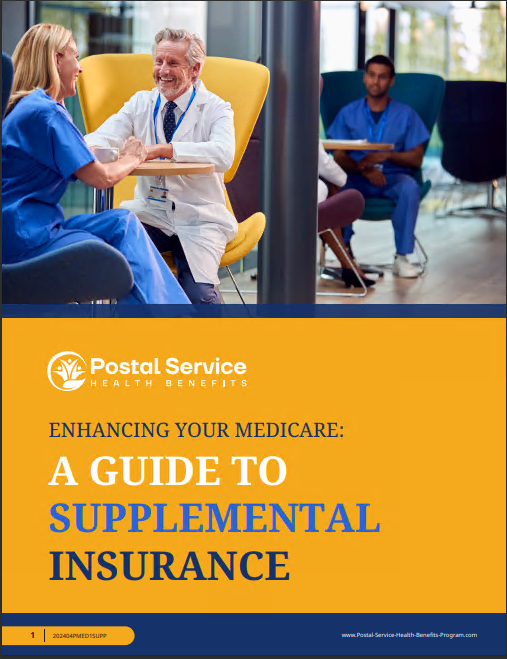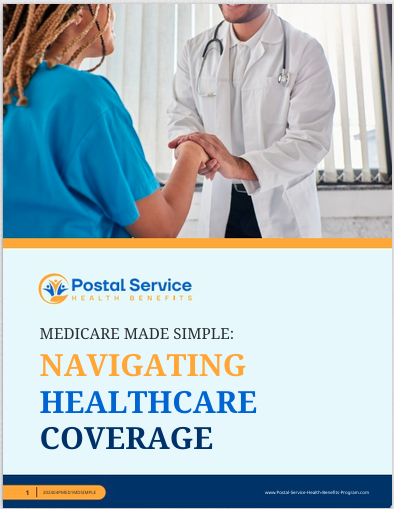Key Takeaways
-
Some USPS retirees and employees are exempt from the new Medicare Part B requirement tied to the 2025 Postal Service Health Benefits (PSHB) Program.
-
Understanding your exemption status now can help you avoid unnecessary costs or loss of drug coverage in 2025.
What Changed in 2025 for USPS Health Benefits?
In 2025, the U.S. Postal Service fully transitioned from the Federal Employees Health Benefits (FEHB) Program to the newly created Postal Service Health Benefits (PSHB) Program. This new system brings structural changes to how health coverage works for postal retirees and employees. A significant shift involves a new Medicare Part B requirement for many annuitants and their eligible family members.
This requirement affects those who are entitled to Medicare Part A and are eligible for Medicare Part B. If you’re part of this group and don’t enroll in Part B, you could lose your PSHB drug coverage entirely.
But not everyone has to enroll. Let’s walk through who’s exempt from this requirement—and what you should do next if you’re unsure.
Who Must Enroll in Medicare Part B Under PSHB?
If you’re entitled to Medicare Part A and eligible for Medicare Part B, you are required to enroll in Part B in order to keep full PSHB coverage—unless you qualify for one of the listed exemptions.
This applies to:
-
USPS retirees entitled to Medicare Part A
-
Family members covered under a PSHB plan who are also entitled to Medicare Part A
By enrolling in Part B, you continue to enjoy full PSHB benefits, including integrated prescription drug coverage under a Medicare Part D Employer Group Waiver Plan (EGWP).
Who Is Exempt from the Medicare Part B Requirement?
In 2025, the following individuals are exempt from the mandatory Medicare Part B enrollment requirement under PSHB:
1. Retirees Who Retired On or Before January 1, 2025
If you officially retired from USPS on or before January 1, 2025, you are not required to enroll in Medicare Part B to maintain your PSHB coverage. You may choose to enroll, but it’s not mandatory.
2. Employees Who Were Age 64 or Older As of January 1, 2025
If you were still an active USPS employee and had reached age 64 by January 1, 2025, you’re exempt from the new rule—even if you retire later. This gives older workers more flexibility in deciding whether to enroll in Part B.
3. Individuals Residing Outside the United States
Living abroad? If you reside permanently outside the United States and its territories, you’re exempt from the Medicare Part B requirement. This is because Medicare does not generally cover care received overseas.
4. Those Eligible for Health Services from the VA or Indian Health Service (IHS)
If you’re eligible to receive care through the Department of Veterans Affairs or the Indian Health Service, you are exempt. The government recognizes these as alternate federal systems that provide qualifying care.
5. Current Family Members Who Aren’t Entitled to Medicare Part A
The requirement only applies to those who are entitled to Medicare Part A. If a family member isn’t eligible for Part A—for example, due to insufficient work history—they are exempt.
Special Enrollment and Coverage Rules
Medicare Part B Special Enrollment Period (SEP)
In 2024, a one-time Special Enrollment Period (SEP) ran from April 1 through September 30. This window allowed eligible annuitants and family members to enroll in Medicare Part B without a late enrollment penalty. If you missed that SEP and are not exempt, enrolling now may result in penalties and coverage gaps.
PSHB Open Season and Plan Selection
From November to December, the PSHB Open Season allowed current USPS employees and retirees to choose their new PSHB plan. If you’re already enrolled, your plan carried over. However, those subject to the Part B requirement must show proof of enrollment to maintain drug coverage in 2025.
What Happens If You Don’t Enroll and Aren’t Exempt?
Failure to enroll in Medicare Part B—if you’re not exempt—can result in a total loss of your prescription drug benefits under the PSHB plan. You’ll remain enrolled in the health plan but without drug coverage. Even worse, re-enrollment in drug benefits after opting out is extremely limited.
Here’s what you risk:
-
Loss of prescription coverage entirely
-
No access to Medicare Part D through the PSHB EGWP
-
Late enrollment penalties if you try to sign up later
-
Limited re-enrollment options unless you qualify for a future Special Enrollment Period
Benefits of Enrolling in Part B Even If You’re Exempt
While exemptions offer flexibility, some retirees and employees choose to enroll in Medicare Part B anyway. Here’s why:
-
Lower Out-of-Pocket Costs: Many PSHB plans reduce copayments and deductibles for members who enroll in Part B.
-
Better Provider Access: Providers who accept Medicare are more likely to see patients with dual PSHB and Medicare coverage.
-
Drug Cost Savings: Medicare Part D integration often lowers medication costs, particularly for high-use prescriptions.
-
Coordination of Benefits: When you’re enrolled in both Medicare and PSHB, claims coordination is smoother, reducing billing confusion.
How to Check Your Exemption Status
If you’re unsure about whether you’re exempt, use this checklist:
-
Did you retire on or before January 1, 2025?
-
Were you 64 or older on January 1, 2025?
-
Do you live outside the U.S. and its territories?
-
Are you eligible for care through the VA or IHS?
-
Are you or your covered family member not entitled to Medicare Part A?
Answering “yes” to any of the above means you’re likely exempt from the new Medicare Part B requirement.
Key Dates and Deadlines in 2025
Understanding timelines is essential to avoid gaps or penalties:
-
January 1, 2025: The PSHB Program officially began.
-
First Quarter 2025: Proof of Medicare Part B enrollment may be requested by your PSHB plan.
-
Throughout 2025: If you lose drug coverage due to non-enrollment, re-enrollment is limited unless you qualify for a Special Enrollment Period.
If you’re nearing Medicare eligibility and are unsure what to do, take action early. Contacting your plan or a licensed agent can prevent unnecessary delays and complications.
What About Other Federal Benefits?
The PSHB transition doesn’t affect other benefits such as:
-
FEDVIP: Dental and vision coverage remain unchanged and available to both active employees and retirees.
-
FEGLI: Life insurance benefits stay in place with no changes due to PSHB.
-
FLTCIP: Long-term care insurance is not impacted by the transition.
-
FSAFEDS: Flexible Spending Accounts continue as normal for eligible active employees.
These benefits are managed separately and remain governed by the Office of Personnel Management (OPM).
Why This Matters for USPS Families
If you’re a USPS employee nearing retirement or a retiree navigating these changes, the 2025 updates are critical. Failing to understand your responsibilities or exemption status could lead to costly coverage losses—particularly when it comes to prescriptions.
Taking time now to confirm your exemption or enroll in Medicare Part B (if required) helps protect your access to care and medication throughout your retirement.
Secure Your Coverage Now
Don’t wait until a problem arises. Double-check your exemption status today and review your Medicare enrollment if you’re required to act. If you’re still uncertain, reach out to a licensed agent listed on this website for professional guidance tailored to your specific situation.






